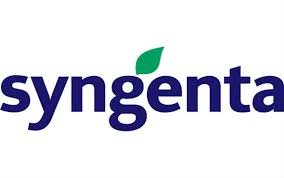Royal DSM launches intelligent sustainability service Sustell
By leveraging digital and data-driven solutions such as Sustell™, DSM is advancing its precision animal farming journey towards a brighter future.
Royal DSM, a global science-based company active in Nutrition, Health and Sustainable Living, has launched Sustell™ — a first-of-its-kind intelligent sustainability service that delivers accurate, simple, and actionable farm-level solutions – to improve the environmental footprint and profitability of animal protein production. Through Sustell™, DSM is underlining its commitment to its strategic initiative We Make It Possible, which is driving a robust and achievable global transformation toward sustainable animal protein production. By leveraging digital and data-driven solutions such as Sustell™, DSM is advancing its precision animal farming journey towards a brighter future.
DSM has developed Sustell™ together with Blonk, a recognized independent expert and leader in Life Cycle Analysis (LCA) and sustainability performance in the food and agriculture fields. The Sustell™ service is built around a state-of-the-art Intelligence Platform that is connected to the Blonk APS-footprint tool, together with an ‘Expert Center’ made up of a team of DSM and Blonk experts in LCA, animal nutrition and sustainability. The Expert Center partners with animal protein producers, assessing the baseline environmental footprint of their animal production using their actual farm and feed data rather than industry averages and proxy data sets, and then developing case-specific intervention scenarios known as ‘what-if’ models to make measurable sustainability improvements.
By providing deep insights into farm-level emissions Sustell™ opens new possibilities for the wider value chain, including the ability to certify and incentivize sustainable farm practices. For example, retailers and financial institutions will be able to objectively manage the risks and opportunities relating to the environmental footprint of animal protein. In addition, Sustell™ enables farmers to accurately forecast the impact of sustainability measures on financial performance.
Hans Blonk, CEO Blonk Consultants & Blonk Sustainability Tools: “We are excited to be launching Sustell™ today alongside DSM – a truly intelligent sustainability service that is front and center to our mission at Blonk – to support organizations in addressing the challenge of making the global production and consumption of food more sustainable.”
David Nickell, VP Sustainability & Business Solutions DSM Animal Nutrition & Health: “Sustell™ achieves the seemingly impossible – simplifying the complexity of measuring, validating and improving the environmental sustainability of animal protein transparently, scientifically, farm by farm, system by system. Animal farming companies and the associated value chain, have, for the first time, a powerful solution to measure, compare and improve the sustainability of animal protein.”
Ivo Lansbergen, President DSM Animal Nutrition & Health: “To sustainably feed almost 10 billion people by 2050 within our planetary boundaries, we must apply new thinking, technologies and business models. Together, we must shift away from criticizing animal farmers for their environmental impact and instead help and support them by providing the tools and systems to improve the sustainability footprint of animal farming. In line with this ambition, Sustell™ is a first-of-its-kind service that will enable positive change for business and the environment – and help deliver on our purpose of creating brighter lives for all.”
By leveraging digital and data-driven solutions such














